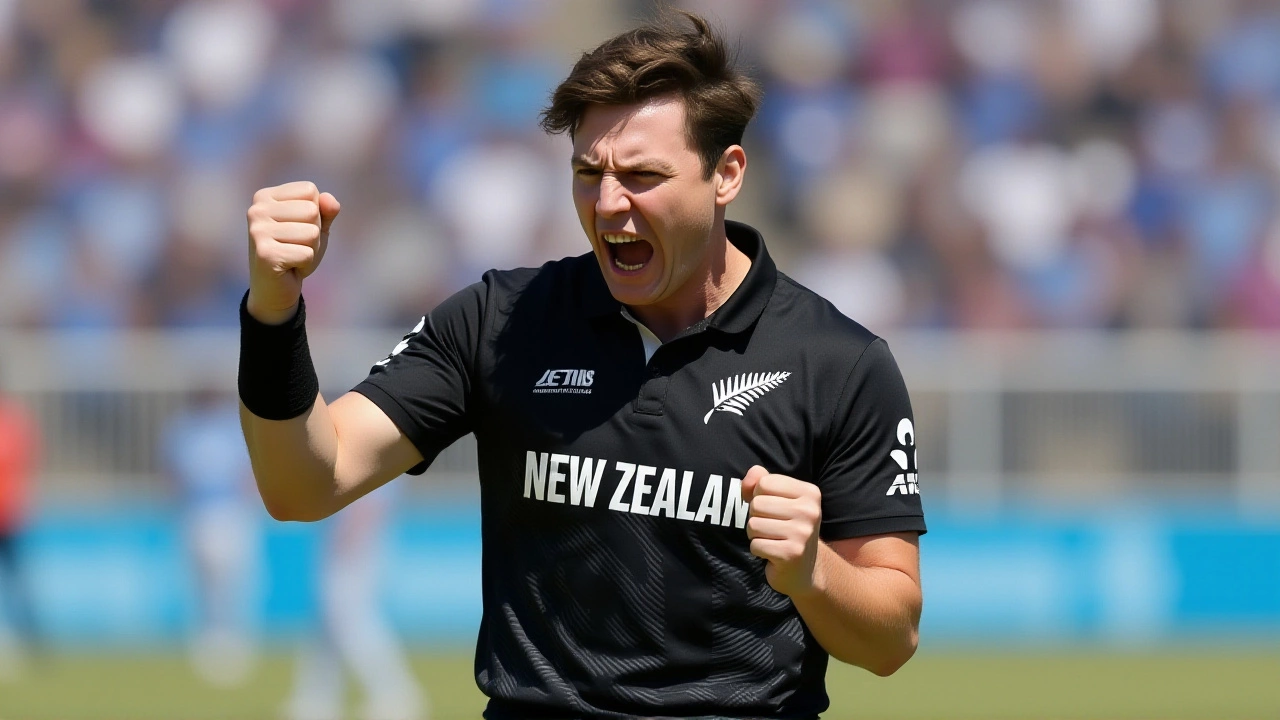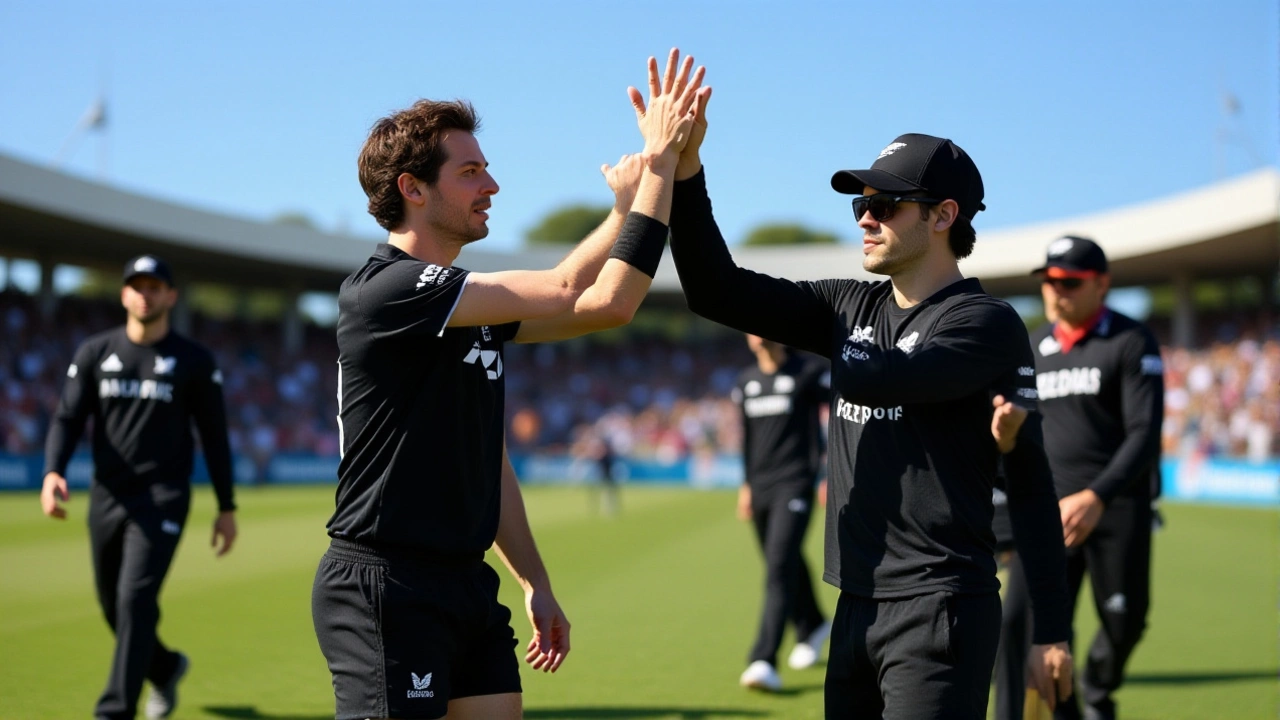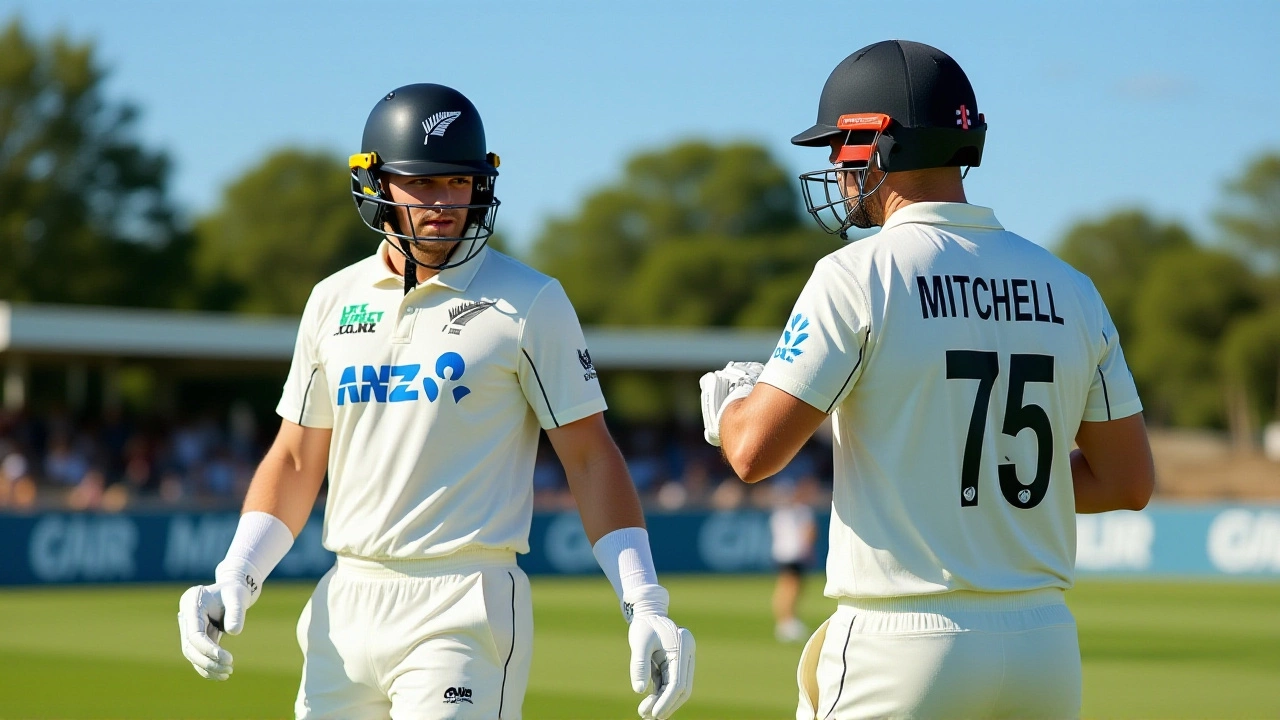Matt Henry Shatters Record with 5-Wicket Haul Against India in ICC Champions Trophy 2025

On a crisp Sunday evening in Dubai, Matt Henry didn’t just bowl — he rewrote history. The New Zealand fast bowler, born August 18, 1991, became the first player ever to take a five-wicket haul against India in the ICC Champions TrophyDubai International Cricket Stadium, finishing with stunning figures of 5 for 42 in just eight overs. India, chasing a competitive total, were bundled out for 249 — their lowest in a Champions Trophy match since 2017. And it wasn’t luck. It was precision, nerve, and a mastery of conditions that left even the most seasoned observers speechless.
A Bowler Who Conquers India
Henry’s performance wasn’t just a flash in the pan. It was the third time he’s taken four or more wickets against India in ODIs — a feat no other New Zealander has accomplished more than twice. Andre Adams, Trent Boult, Jacob Oram, and Tim Southee all have two such hauls. Henry now stands alone. He trapped Shubman Gill lbw for 2 in the third over, then clean-bowled Virat Kohli with a searing inswinger after the legend’s 300th ODI. Glenn Phillips’ acrobatic catch at mid-off silenced the Indian crowd. By the time Henry returned in the final overs, the writing was on the wall.
He finished the job with a one-handed catch by Kane Williamson at point to dismiss Ravindra Jadeja, then cleaned up Hardik Pandya and Mohammad Shami in the final over. The crowd, which had been roaring for India’s comeback, fell silent. Even the commentators paused — then erupted. "That’s not just a spell," said former Australia captain Ricky Ponting on Willow TV. "That’s a masterclass against the best batting lineup in the world."
Breaking Records, One Wicket at a Time
Henry’s 5-42 didn’t just top the Champions Trophy charts against India — it became the third-best bowling performance by any bowler against India in all ICC ODI tournaments. Only Australia’s Ken MacLeay (6-39 in 1983) and Damien Fleming (5-36 in 1996) have done better. Among New Zealanders, only Jacob Oram has recorded better figures in the Champions Trophy — his 5-36 against the USA in 2004.
But the bigger milestone? Henry passed Sir Richard Hadlee on New Zealand’s all-time ODI wicket list. With 163 wickets in 90 matches, he now leads the nation’s bowling pantheon. Hadlee, who took 158 wickets over 115 games, was once considered untouchable. Now, Henry has moved past him — and he’s still in his prime.

Why This Matters Beyond the Scoreboard
India entered the match as favorites. They’d won their first two group games, and their top order — Rohit Sharma, Virat Kohli, Shreyas Iyer — was in scintillating form. Iyer’s 79 was a gem, equaling Brian Lara’s record for most runs in a Champions Trophy innings without a century. Axar Patel’s 42 and Hardik Pandya’s 45 off 32 balls offered brief hope. But Henry’s spell dismantled the backbone of the innings.
For New Zealand Cricket, headquartered in Wellington, this was more than a win — it was validation. Henry, often overshadowed by the more flamboyant Boult and Southee, had proven he could carry the attack under pressure. His ability to swing the ball both ways, coupled with pinpoint yorkers and a deceptive slower ball, made him nearly unplayable on a pitch that offered just enough grip.
Meanwhile, the International Cricket Council, which organized the tournament from its base in Dubai, now has a new benchmark. Only two bowlers in Champions Trophy history have taken six wickets in an innings: Sri Lanka’s Farveez Maharoof (6-14 in 2006) and Australia’s Josh Hazlewood (6-30 in 2017). Henry’s 5-42 is now the 10th-best performance ever in the tournament’s 21-year history.
What Comes Next?
New Zealand’s victory by 42 runs didn’t just lift them to second place in Group B — it forced a rethink in India’s strategy. With the knockout stage looming, questions swirl: Can India’s batting recover? Will Henry’s form carry into the semis? And what does this mean for New Zealand’s chances of lifting their first Champions Trophy?
Analysts point to a deeper trend: Henry’s rise coincides with New Zealand’s shift from a spin-heavy attack to a pace-dominated one. With Boult, Southee, and now Henry forming a lethal trio, New Zealand may have found their new identity — one built on aggression, control, and ruthless efficiency.

The Bigger Picture
Historically, the Champions Trophy has been a graveyard for bowlers against India. High scores. Flat pitches. Explosive batting. Until now. Henry’s spell breaks a 21-year pattern. No bowler had taken more than four wickets against India in the tournament since Pakistan’s Naved-ul-Hasan in 2004. And no one had ever done it with such consistency across multiple encounters.
It’s not just about numbers. It’s about legacy. Henry, the quiet workhorse from Christchurch, didn’t celebrate with fireworks. He just nodded to his captain, clapped his gloves, and walked off — as if he’d done this a hundred times before. Maybe he had.
Frequently Asked Questions
How does Matt Henry’s 5-42 compare to other great bowling performances against India in ICC tournaments?
Henry’s 5-42 ranks as the third-best bowling performance against India in all ICC ODI events, behind only Australia’s Ken MacLeay (6-39 in 1983) and Damien Fleming (5-36 in 1996). It’s the best ever in Champions Trophy history against India, surpassing Naved-ul-Hasan’s 4-25 from 2004. Only two bowlers in tournament history have taken more wickets in a single innings: Farveez Maharoof (6-14) and Josh Hazlewood (6-30).
Why is this performance considered a breakthrough for New Zealand cricket?
New Zealand has long been known for its balanced attacks, but Henry’s dominance against India — a team that typically dominates limited-overs cricket — signals a new era. He’s now the first New Zealander to take three 4+ wicket hauls against India, and his rise past Sir Richard Hadlee’s wicket record shows the team’s fast-bowling pipeline is producing world-class talent under pressure.
What impact does this have on India’s chances in the Champions Trophy 2025?
India’s loss in Dubai puts them in a precarious position. They’ll need a massive win in their final group match and hope for favorable results elsewhere to advance. Henry’s spell exposed vulnerabilities in their middle order — especially against pace on slightly abrasive pitches. If they can’t adapt, their campaign could end early despite a strong start.
How does Matt Henry’s career now compare to other legendary New Zealand bowlers?
With 163 ODI wickets in just 90 matches, Henry has surpassed Sir Richard Hadlee (158 wickets in 115 games) as New Zealand’s highest wicket-taker in ODIs. His strike rate (25.7) is better than Hadlee’s (30.4), and his economy rate (4.8) is among the best for a frontline fast bowler. He’s now firmly in the conversation with Trent Boult and Tim Southee as New Zealand’s greatest modern fast bowlers.
Is this the first time a bowler has taken a five-wicket haul against India in the Champions Trophy?
Yes. Before Henry’s 5-42 on March 2, 2025, no bowler had ever taken five wickets against India in any Champions Trophy match. Pakistan’s Naved-ul-Hasan held the previous best with 4-25 in 2004. Henry’s feat is historic not just for its numbers, but for the context — doing it against India’s most dangerous batting lineup on a global stage.
What makes Henry so effective against Indian batsmen?
Henry thrives on movement off the pitch and subtle variations in pace. Indian batsmen, often trained to dominate spin and play sweep shots, struggle with his ability to seam the ball back in or away late. His yorkers are lethal in the death overs, and his field placements — often with slip and gully crouched low — exploit their tendency to drive early. He reads the game like a chess player.